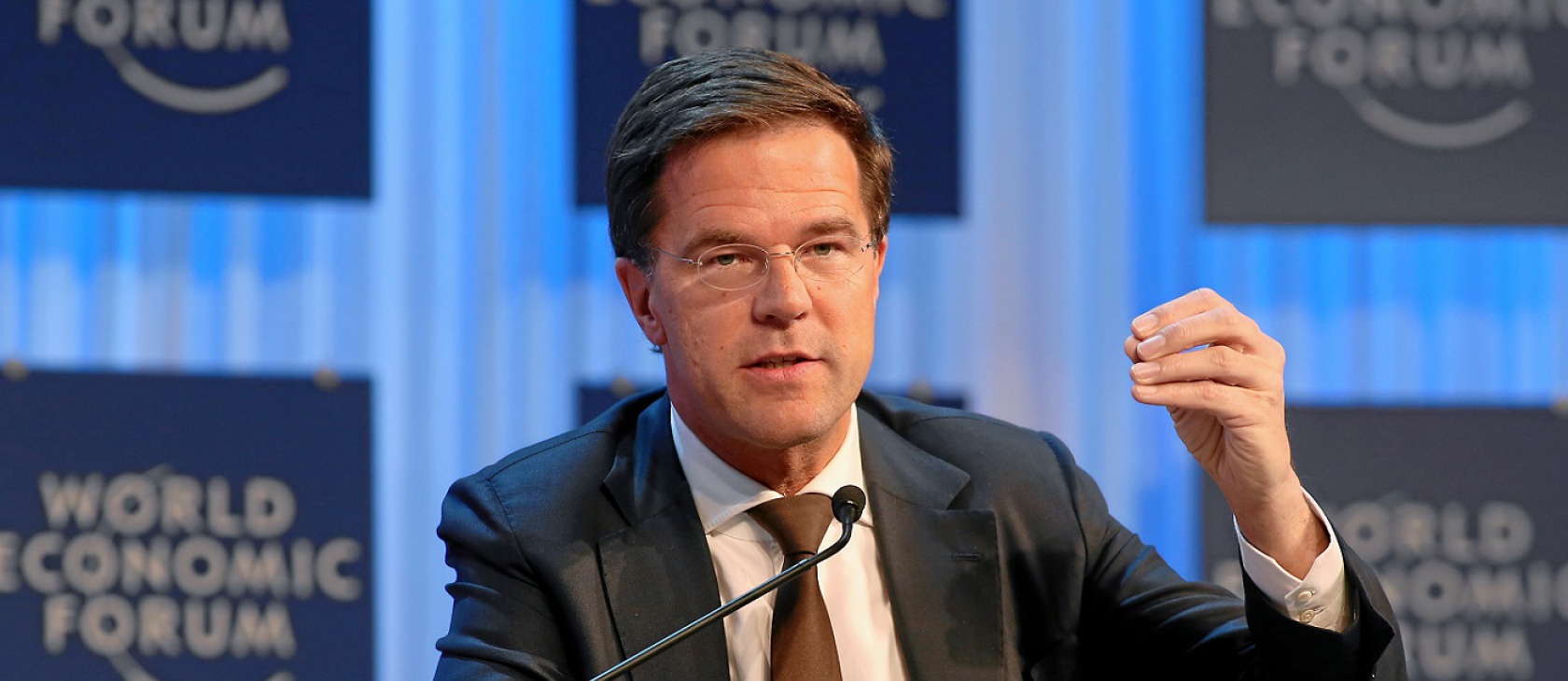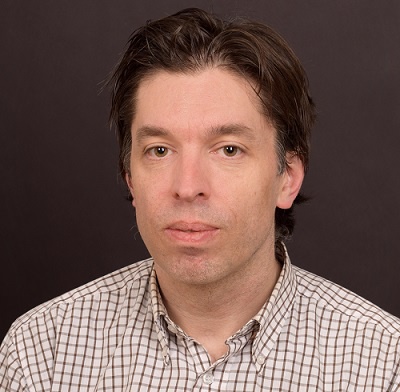Campaigns test character under pressure and over time. On Wednesday, Dutch Prime Minister Mark Rutte passed that test easily. According to provisional results, he won with a 13-seat margin against his nearest challenger, Geert Wilders – particularly impressive, given how close the polls were just a week ago.
Rutte’s victory can be attributed to his touting his successful economic record, an economy on the upswing, and a commitment to limited but real European integration. The coalition he will have to seek will continue to build upon those issues, which facing a serious challenge to integrate new immigrants and deal with a potentially explosive social issue.
On a visceral level, Rutte’s entire campaign contrasted action with rhetoric. His cryptic campaign slogan – “Normaal. Doen.” (Act. Normal.) – was plastered in posters on bus stops across the country, emphasized precisely that. On the one hand the slogan made a subtle reference to an article Rutte had published in major newspapers January 23, in which he had argued that immigrants should “act normal or go away.” On the other hand, the poster also harked back to a famous run-in in parliament with Geert Wilders in 2011. Wilders had lashed out at the prime minister, yelling “Doe eens normaal man” (“for once, act normal”), to which Mark Rutte responded, “Doe eens normaal man? Doe lekker zelf normaal!” (“Act normal? You should act normal yourself!”)
Taken together, the subtle aim of the cryptic poster becomes clear. It contrasted the prime minister as the man of action (“doen”) with Geert Wilders, the man who talks too much. Turkish President Erdogan’s insults gave Rutte a golden opportunity over the weekend to give a practical demonstration of his resolve and determination to act by denying the Turkish foreign secretary permission to enter the country for the purpose of campaigning for the Turkish referendum.
All this prepared the terrain for Mark Rutte’s final test on Monday: the only one-on-one debate with the other leading candidate, Geert Wilders, two days before the elections. The one memorable phrase from this debate at the Erasmus University Rotterdam is: “Tweeting from the couch is not the same thing as governing the country.” Rutte obviously referenced both Geert Wilders’ and Donald Trump’s Twitter activities. His disciplined campaign had always remained on message: VVD against PVV, Rutte against Wilders, cosmopolitan continuity against ultra-nationalist chaos.
After winning the election, he made clear that he sees further economic development and employment, fueled by his pragmatic, free market principles, as the key to deflating Wilders-style populism. Asked by a journalist after his victory what his message to supporters of Geert Wilders would be, he answered:
His supporters are not so much interested in Left or Right. They want to be part of this society; they want to be heard. And they feel that in the last couple of years, during the crisis, they had to pay more than average … to get this country out of the crisis. And I am very much motivated to making sure that they are part of the recovery, as well.
Rutte’s is a phrase reminiscent of the Christian Democrats (CDA), a possible coalition partner. CDA members write on their website about the “Rijnlandse model” their party aims for:
We want an honest economy in which everybody profits from the work we accomplish together. An honest economy that reconciles the concerns of business owners and workers. Rejecting a culture of disposability in which people, natural resources and nature are disposed of after being used. Rejecting a culture in which everything is reduced to buying and consuming. Connecting tradition and future in regions of family businesses and startups.
It may be compatible with yet potential coalition partner, ChristenUnie, which writes in its publication Rijnland Works, presented in the weeks leading up to the election:
Something strange is happening in the Netherlands. The economic crisis seems to be behind us: unemployment is falling, the housing market is picking up, the economy is growing. This is enough reason for a positive attitude, especially when we realize that the Netherlands has relatively low income inequality. Yet there is much discontent and disaffection among people.
Labour not working
Most telling from the election results is that an historic force in Dutch politics, the Labour Party (PvdA), was decimated. It saw its numbers dwindle from 38 to nine seats in Parliament. Smelling the coming defeat Felix Rottenberg, a prominent party member, started criticizing the campaign of standard-bearer Lodewijk Asscher the day before the election was held. Wouter Bos, the PvdA leader from 2003 to 2007, blamed this huge loss on the fact that the party had been part of the coalition government with Mark Rutte during four very difficult years. The failure to keep the progressive coalition together resulted in victory for the social liberals (D66), which gained 19 seats; the ecological Greens (GroenLinks), which gained 14 seats; and the rise of immigrant party DENK – primarily supported among Muslims in big cities – which gained three seats. In addition, the new Party for the Animals (PvdD) gained five seats, and The Elderly Party (50PLUS) gained another four seats.
The Labour Party may have been spared this fate had it listened to historical precedent. Instead of following in the footsteps of Wim Kok, prime minister of the Netherlands from 1994-2002, who de-emphasized ideology, the PvdA wasted a lot of energy on cultural issues during these years of economic recovery. Instead of letting work be the motor of both economic prosperity and cultural integration, cultural issues rose to the front. In 2013, deputy prime minister Lodewijk Asscher (PvdA) introduced a “participation declaration” to “ensure” that immigrants are aware of the “basic principles of Dutch society.” Another telling example of the focus on cultural issues inside the PvdA came last month, when Lilianne Ploumen, the PvdA minister of foreign trade and development cooperation, gained worldwide attention by launching an international abortion fund, seeking global funds to offset President Trump’s reinstatement of the Mexico City policy curtailing U.S. taxpayer funding of abortion advocacy around the world.
Overijssel Works
The cornerstone of Mark Rutte’s new coalition government will most likely consist of his People’s Party for Freedom and Democracy (VVD), the socially liberal D66, and the Christian Democrats (CDA). While VVD and D66 are both part of the liberal-centrist Alliance of Liberals and Democrats for Europe Group (ALDE) in the European Parliament, there are important differences between them. During the campaign Mark Rutte and CDA standard-bearer Sybrand Buma both emphasized that they only see a limited role for the European Union. By contrast, in a debate between the party leaders in February, D66 leader Pechtold suggested the necessity of “more Europe” in response to the election of Donald Trump. And, unlike CDA and VVD, D66 has emphasized in its program that it wants a climate policy in line with the “historic” climate agreement signed in December 2015.
But even a combination of these three parties would need a fourth partner to reach a majority in both the lower house and the Senate. With the consent of all parties, the president of the parliament has appointed Edith Schippers (VVD), current minister of health, as scout to explore what parties could form the new government. Many see ChristenUnie, with its five seats, as the obvious fourth wheel. There is important overlap with VVD and CDA concerning the role of Europe, and on the need for an increase in defense spending as a responsible NATO member state. On immigration and climate policy, it sees eye to eye with D66. On economic policy and regional focus, the ChristenUnie is a natural ally of the Christian Democrats (CDA). Eddy van Hijum, provincial minister of Overijssel (CDA), took to twitter to argue in favor of this “Overijssel Model.”
However, one issue continues to separate them: the hot-button issue of extending legally assisted suicide to elderly, who feel they have a “completed life.”
Whatever the outcome, most observers expect we will have a new government sometime after the summer.
(Photo credit: World Economic Forum. This image has been cropped. CC BY-SA 2.0.)




